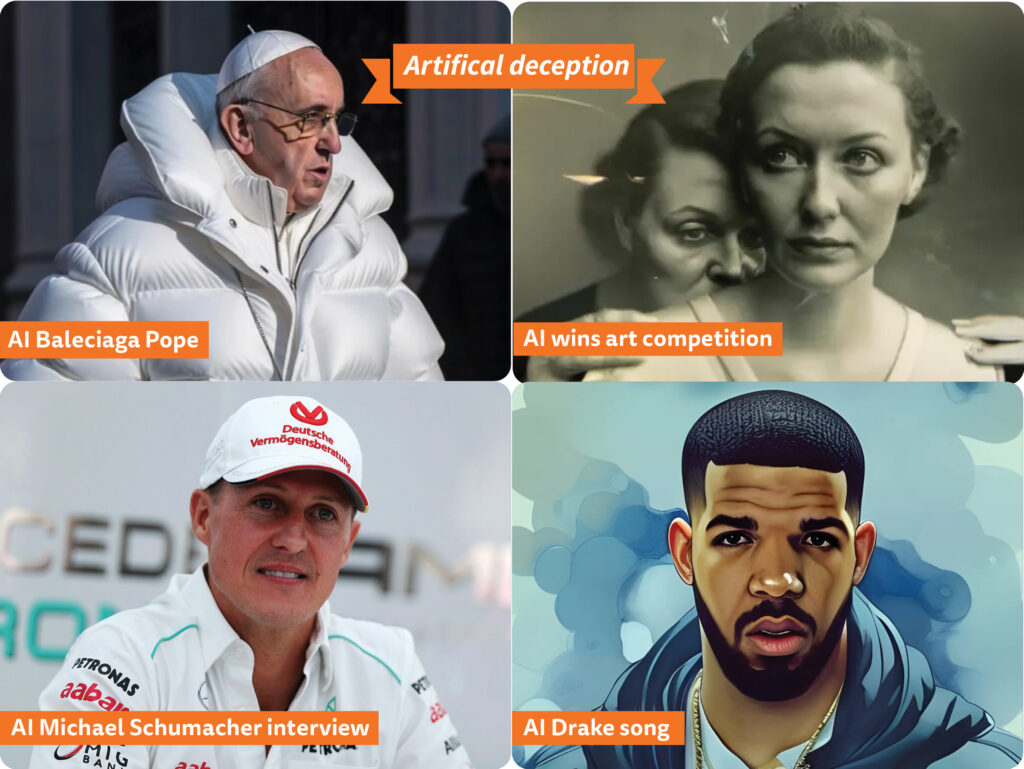Can we believe our own eyes? Artificial Intelligence image generators are winning art and photography competitions around the world, leading people to question even their own judgement.
How robot artists are fooling the world
 See it to believe it? Even experts struggle to pick out AI-generated images.
See it to believe it? Even experts struggle to pick out AI-generated images. Glossary
Colorado - A state in the west of the US that contains much of the Rocky Mountains.
Artificial Intelligence - Artificial intelligence, or “AI,” is the ability for a computer to think and learn. With AI, computers can perform tasks that are typically done by people, including processing language, problem-solving, and learning.
Sony - A Japanese technology company that produces electronic goods.
Pope - The bishop of Rome and the head of the worldwide Catholic Church.
chatbot - A chatbot is a computer programme that simulates human conversation or "chatter" through text or voice interactions.
